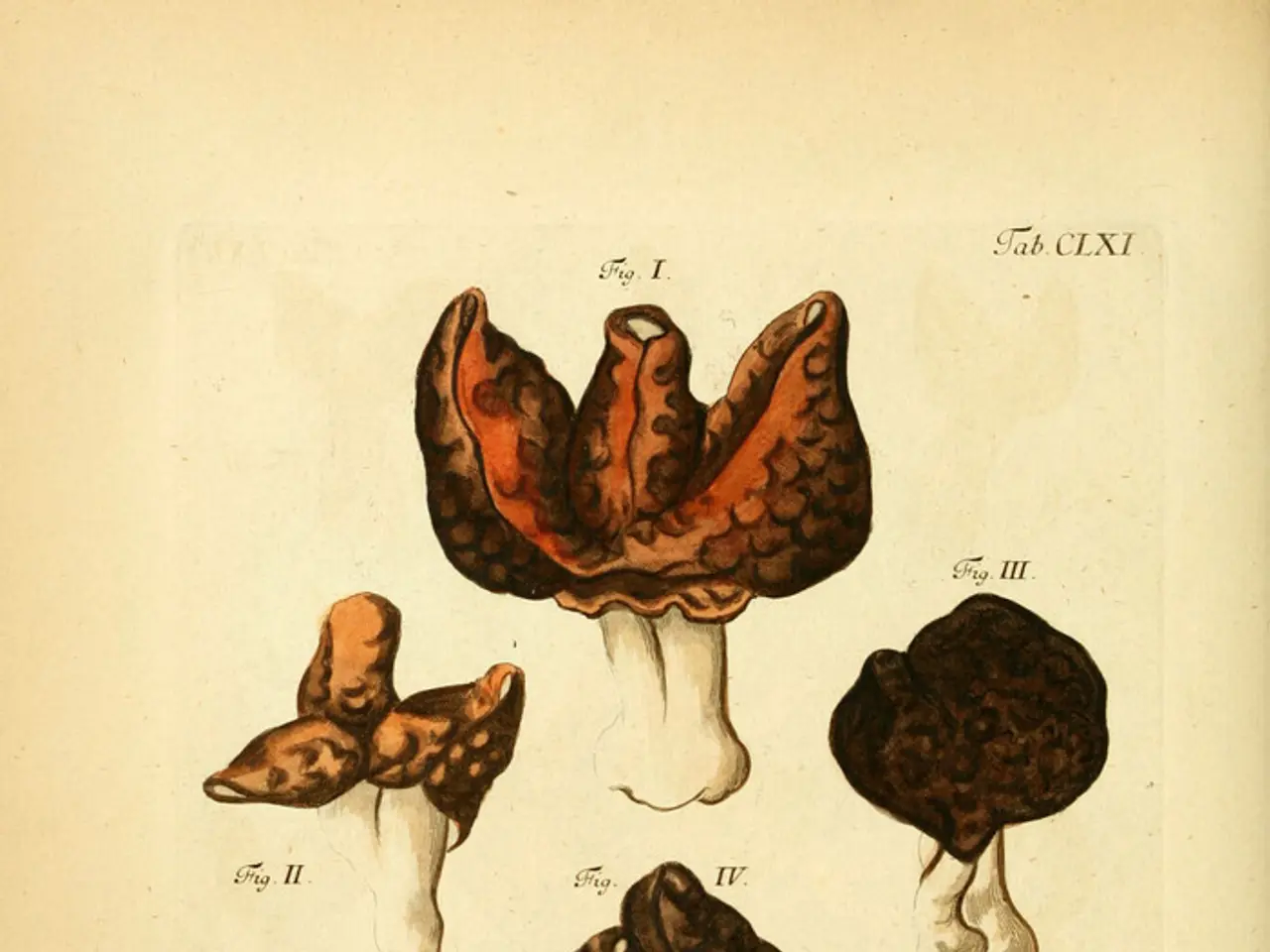Jharkhand Rugda Mushroom: A Unique and Valuable Wild Mushroom Species
Hidden Forest Jewel of Jharkhand: The Rugda Mushroom, Empowering Farmers Financially through Nutrition and Income Boost
Nestled deep within the tropical and subtropical forests of Jharkhand, India, lies a unique and highly prized wild mushroom: the Rugda mushroom. Classified under the Termitomyces spp., this mushroom forms a symbiotic relationship with termite colonies, thriving in moist, undisturbed soil and leaf litter near forested areas or agricultural fields.
Nutritional Powerhouse
Rugda mushrooms are not just a delight for the taste buds but offer significant nutritional benefits. Packed with essential nutrients, they are an important addition to the diets of local tribal communities:
- Rich Protein Content: Rugda mushrooms contain a high amount of protein (14-16%), making them a valuable source of plant-based protein.
- Vitamins and Minerals: They are rich in vitamins, particularly B-complex vitamins, and minerals such as potassium, phosphorus, and iron.
- Dietary Fiber: Rugda mushrooms provide dietary fiber essential for digestion and contribute to their overall nutritional profile.
- Low Fat & Calories: They offer a healthy, low-fat food option.
- Bioactive Compounds: Contain antioxidants and compounds that may have medicinal benefits, including boosting immunity and exhibiting anti-inflammatory properties.
Harvest Season and Sustainability
The seasonal window for harvesting Rugda mushrooms in Jharkhand typically corresponds with the monsoon season, spanning from June to September. The onset of rains increases soil moisture drastically, triggering the mushroom fruiting process. Careful harvesting is crucial to ensure sustainable future growth.
Conservation Challenges
Despite their importance, Rugda mushrooms face several conservation and sustainability issues:
- Overharvesting: Increasing demand in local and regional markets leads to excessive picking, threatening natural regeneration.
- Habitat Loss: Deforestation, land-use changes like agricultural expansion, mining, and urbanization reduce termite mound sites and forest cover essential for mushroom growth.
- Climate Change: Altered monsoon patterns and soil moisture availability disrupt the delicate ecological balance necessary for their fruiting.
- Lack of Awareness: Limited scientific research and local awareness regarding sustainable harvesting and conservation methods.
- Decline in Termite Populations: Since Rugda mushrooms depend on termite symbiosis, any factor reducing termite populations adversely affects mushroom availability.
Preserving the Rugda Mushroom
To ensure the long-term survival of Rugda mushrooms, it is essential to implement sustainable practices:
- Community-led sustainable harvesting practices.
- Protection of termite mounds and forest habitats.
- Encouragement of scientific cultivation techniques to reduce pressure on wild populations.
- Local conservation awareness programs integrating tribal knowledge.
- Monitoring climate impacts and habitat changes through regional ecological studies.
A Vital Component of the Forest Ecosystem
Beyond their nutritional value, Rugda mushrooms play a crucial role in the forest ecosystem. They obtain nutrients from the soil and provide trees with essential minerals such as phosphorus in exchange.
The Future of Rugda Mushroom
With ongoing research and collaboration between state agricultural universities, state forest departments, and local communities, the future of Rugda mushrooms looks promising. Through sustainable practices and conservation efforts, this unique and valuable wild mushroom can continue to nourish both people and the ecosystem for generations to come.
- The high protein content in Rugda mushrooms (14-16%) makes them a valuable plant-based protein source in health-and-wellness and fitness-and-exercise diets.
- Rugda mushrooms are not only prized for their taste but also for their rich nutritional profile, offering vital vitamins, minerals, dietary fiber, and low calories, which contribute to food-and-drink and lifestyle choices.
- To protect Rugda mushrooms against climate change's effects, it is important to monitor climate impacts and habitat changes through environmental-science and climate-change studies.
- Cooking with Rugda mushrooms not only offers nutritional benefits but also helps maintain a healthy environment by favoring sustainable harvesting and cultivation practices, thereby preserving the forest ecosystem.




